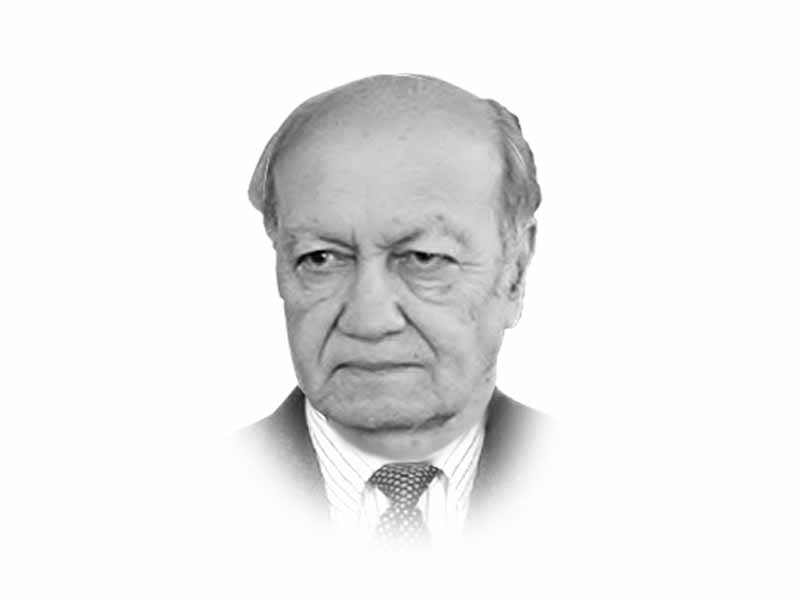
Since assumption of President Trump in office the Saudi-US partnership has also continued to blossom as both countries need each other for their own reasons. Iran’s growing power and influence in the region had to be checkmated with revolutionary changes within the kingdom and by developing strong economic, military and strategic ties with the US. Internally, too, there was restlessness as access to the outside world brought forth to Saudis to judge the glaring disparities existing within the country despite its enormous oil wealth. Besides, Saudi Arabia was lagging behind in various fields and far too dependent on foreign expatriates for manning executive positions and labour-intensive jobs.
It seems Prince Mohammad with an open and expansive mind is determined to transform Saudi Arabia into a modern state. He perhaps visualises his country to be soon a model modern Islamic state by introducing economic, political and social reforms. Among the prince’s high priority is the emancipation of women and loosening of traditional taboos and customs. Already a glimpse of his vision is reflected in allowing women to drive, participate in sports and extend wider opportunities in government and the private sector.
In a highly traditional and deeply conservative society bringing about these radical changes is no easy task. Already there is strong opposition from certain conservative sections of the society and more so from his own members of the royal family. Hopefully, the prince will be able to overcome opposition with the broad support of people and foreign powers for his policies. Fortunately, he enjoys considerable support from the younger generation on whom he is primarily relying. He has also tried to take along the clergy and those opposed to his policies are apparently being sidelined.
President Trump and the West are fully backing Prince Mohammad’s domestic and regional policies. If the Saudi reforms are implemented faithfully and succeed it would have far-reaching impact on Saudi Arabia’s social and political structure. The emancipation of Saudi Arabia is expected to counter militant and radical forces if any within the country and have a salutary impact on the Muslim world.
The expectations are a relatively liberal Saudi Arabia that is economically powerful, managerially and the workforce less dependent on foreign assistance will be better positioned to be a leading force in the region. More significantly, it will be an effective counterweight to the growing influence of Iran in the region and beyond. This obviously has a serious downside, as divisions within the Muslim world are already dissipating the energy and resources of these countries.
Saudi and Iranian proxy wars in Syria and Yemen have destroyed these countries. It has caused unimaginable suffering to the people and allowed the US and Russia and major regional powers like Turkey to back their own favourites. Regrettably, the foremost beneficiary of this is Israel that has taken full advantage of the cleavage to expand its territorial boundaries and strategic influence in the region.
The Palestinian cause has been totally abandoned and new alliances have emerged wherein Saudi Arabia and Egypt are openly siding with Israel as for them countering Iran’s growing influence is more threatening than Israel’s annexation of Palestinian territory.
At a personal level, too, what facilitated Prince Mohammad to develop a close relationship with the Trump administration were his close relations with Kushner, the president’s son-in–law. It is also presumed that he played a major role in the Arab-Israeli bonhomie. This decidedly has come at the cost of setting aside the genuine interests of the Palestinians and a major reversal of the fundamental and principled position that Arab and Muslim countries had pursued in the past.
Growing cleavage between Saudi Arabia and Iran, apart from dissipating the national energy of these nations, places Muslim countries, especially Pakistan, in a difficult position. Historically, Pakistan during military regimes and under the PML stewardship remained very close to Riyadh but tried to maintain a balanced relationship with Iran with reasonable success. The exception was during General Zia’s period when Pakistan-Iran ties remained highly strained.
The other more pertinent question is how are the recent developments in Saudi Arabia going to impact, if any, the Muslim world? If the Saudi reforms succeed will other countries also open up their societies and move towards modernity. Will it help in the long term in countering extremism and promote progressive forces? Much would depend on how Saudi Arabia emerges from this bold experimentation.
We have the recent experience of watching the Arab Spring giving us hope then being suppressed. Although these two phenomena are not identical or objective conditions similar yet there are similarities. In Saudi Arabia, Prince Mohammad is leading the change and the ruling establishment enjoys backing of a large cross section of the youth, women and the educated class. Arab Spring was a refreshingly dynamic grassroots movement but was ruthlessly crushed by the Egyptian establishment. The world has since moved at a faster pace, including in the Arab countries.
If Saudi Arabia succeeds in leading the change surely it will have a ripple effect on several Arab and Muslim countries, including Pakistan. First, Saudi Arabia itself will face internal challenges to democratise or at least to loosen its grip on the people and be more accountable. Demand for equitable distribution of national wealth will intensify and overall expectations would generate more noise and disorder. But nations have to pay a price to progress and its leaders should be prepared for steering tumultuous changes. Otherwise, Muslim countries will remain destined as mere pawns to major powers.
Published in The Express Tribune, March 14th, 2018.
Like Opinion & Editorial on Facebook, follow @ETOpEd on Twitter to receive all updates on all our daily pieces.












COMMENTS
Comments are moderated and generally will be posted if they are on-topic and not abusive.
For more information, please see our Comments FAQ